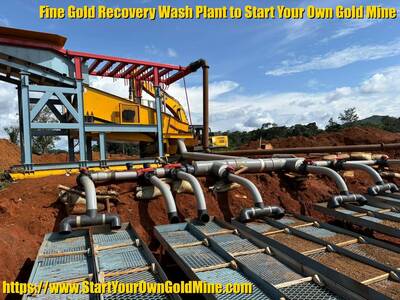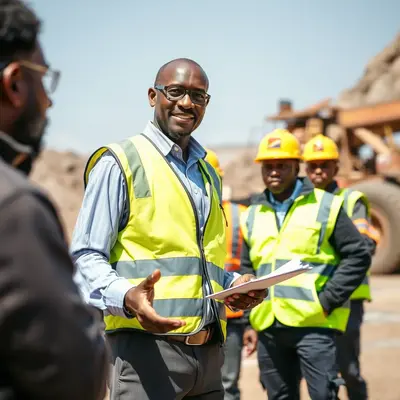What is a Mining Engineer? A Guide to Becoming One.
A is a specialized professional responsible for the . These engineers play a crucial role in the , ensuring that the extraction processes are efficient, safe, and. They are involved in , as well as in the. often collaborate with , , and other professionals to develop and implement . Their work is essential for the supply of raw materials used in various industries, including , , and .

are primarily employed by , both large corporations and smaller independent firms. These companies can range from those focused on to those specializing in . Additionally, Mining Engineers may find ,, and . Their expertise is also valuable in industries that rely on , such as , , and .
are diverse and encompass various aspects of . They are responsible for conducting to . They and to while and the . Mining Engineers also oversee the installation and , ensuring that operations are running smoothly and efficiently. They , and .
Furthermore, are involved in the development of and to protect workers and the surrounding community. They must comply with local, national, and , implementing measures to of . Mining Engineers often , to , and with to develop . Their role is crucial in ensuring that the operates responsibly and sustainably, meeting the growing demand for mineral resources while protecting the planet.
How to become mining engineer in East Africa?
If any applicant wishes to start learning for a Mining Engineer, they can apply on the International University of East Africa (IUEA) by submitting to get the preliminary admission letter. After receiving the admission letter, they can start their journey in mining engineering education. IUEA is dedicated to providing high-quality education and training in various fields, including mining engineering, to prepare students for successful careers in the industry.
Duties of a Mining Engineer
Okay, let’s delve into the very detailed . Their role is multifaceted, demanding a strong technical background, , and often, a deep understanding of environmental and safety regulations. Here’s a breakdown of their key responsibilities:
1. Exploration and Resource Assessment:
- Identifying Potential Deposits: Mining Engineers use, , and to locate areas with .
- Conducting Feasibility Studies: They assess the economic from a specific deposit. This involves analyzing the grade and , , , and the .
- Sampling and Analysis: They collect and analyze to determine , which helps in .
- Developing Resource Models: Mining Engineers create detailed using data from , , and . These models are essential for planning and estimating the life of the mine.
2. Mine Design and Planning:
- Selecting Mining Methods: Based on the resource model and deposit characteristics, they choose the most appropriate mining method. This could be (e.g., , ) or (e.g., , ). The decision depends on factors like , the type of ore, geological conditions, and environmental considerations.
- Designing Mine Layouts: They plan the layout of the mine, including the locations of access roads, processing plants, waste disposal areas, and worker facilities. This involves ensuring efficient transportation of ore and personnel and minimizing environmental impact.
- Developing Mine Plans: They create comprehensive plans for each stage of the mining operation, outlining the sequence of activities, required equipment, personnel needs, and timelines.
- Optimizing Extraction: Mining Engineers continuously analyze and optimize the extraction process to maximize resource recovery, improve safety, and reduce costs. This might involve adjusting drilling patterns, optimizing blasting techniques, or improving haulage systems.
3. Operations Management:
- Overseeing Mining Activities: They supervise the actual mining operations, ensuring that they are carried out according to the mine plan and safety regulations. This includes managing drillers, loaders, miners, and other equipment operators.
- Managing Equipment and Maintenance: They are responsible for the selection, installation, operation, and maintenance of all mining equipment, from drills and trucks to processing plants. They ensure that equipment is properly maintained to minimize downtime and maximize efficiency.
- Ensuring Safety and Health: Mining Engineers prioritize the safety and health of workers. They develop and implement safety protocols, conduct risk assessments, investigate accidents, and implement corrective measures to prevent future incidents.
- Implementing Environmental Measures: They are responsible for ensuring that mining operations comply with environmental regulations. This includes managing waste rock, controlling dust and noise pollution, treating wastewater, and implementing reclamation plans to restore the land after mining.
4. Mineral Processing and Refining:
- Designing Processing Plants: They design and oversee the construction of processing plants, which are used to extract and refine valuable minerals from the ore. This might involve crushing, grinding, milling, flotation, smelting, or refining processes, depending on the type of ore and minerals being extracted.
- Optimizing Processing Techniques: Mining Engineers continuously work to improve the efficiency and effectiveness of mineral processing. This might involve developing new extraction methods, improving existing processes, or reducing energy consumption and water usage.
- Managing Waste Streams: They are responsible for managing all waste streams generated during the mining and processing operations, including tailings (the leftover rock after the valuable minerals have been extracted) and wastewater.
5. Business and Financial Management:
- Budgeting and Cost Control: Mining Engineers are responsible for developing and managing budgets for mining operations. They must control costs while ensuring that the project remains profitable.
- Contract Management: They may be involved in negotiating and managing contracts with equipment suppliers, construction companies, and other service providers.
- Reporting and Communication: They must communicate effectively with various stakeholders, including management, workers, government agencies, and the public. This involves preparing reports, giving presentations, and participating in meetings.
6. Research and Development:
- Innovating Mining Techniques: Mining Engineers are constantly looking for new and better ways to extract minerals. This might involve developing new mining methods, improving existing ones, or finding ways to reduce the environmental impact of mining.
- Researching New Technologies: They stay up-to-date with the latest technological advancements and research how they can be applied to the mining industry to improve efficiency, safety, and environmental performance.
In summary, are extensive and cover all aspects of the mining life cycle, from exploration and resource assessment to mine design, operations management, mineral processing, business management, and research and development. They play a crucial role in the global supply of mineral resources, ensuring that these resources are extracted in a safe, efficient, and environmentally responsible manner. Their work is essential for various industries that rely on minerals for their products and processes.

